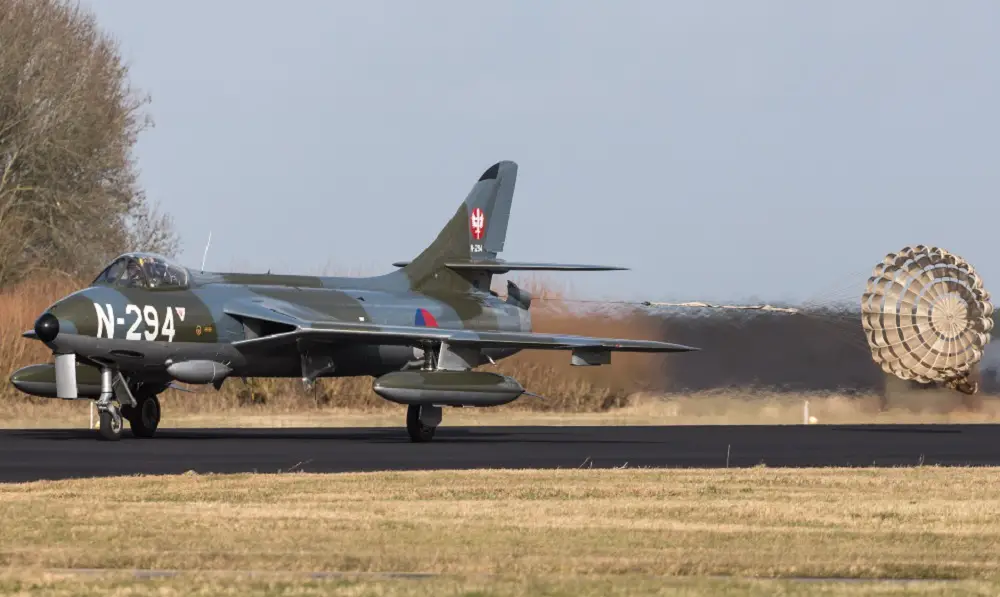The Dutch Hawker Hunter Foundation (DHHF) has announced with deep regret the termination of its operations, marking the end of an era for aviation enthusiasts and the legacy of the Hawker Hunter in Europe. The foundation will also divest its prized Hawker Hunter Mk68 G-EHLW, which remains grounded at Horizon Aircraft Services Ltd. (HAS) in St Athan, Wales. The DHHF’s journey with the Hawker Hunter Mk68, designated N-322/G-EHLW, began with optimism. In July 2022, after extensive maintenance and rigorous inspections in Altenrhein, Switzerland, the aircraft was ferried to St Athan under a UK Civil Aviation Authority (CAA) Permit to Test & Ferry. The foundation anticipated that minor modifications would soon secure a Full Permit to Fly from the CAA, allowing the Hunter to soar over Dutch skies by the end of summer that year.
However, the reality diverged drastically from these expectations. The UK CAA’s handling of the application process proved to be protracted and unpredictable, lacking a clear timeline or assurance of a positive outcome. Nearly two years after its arrival in the UK, N-322 remains grounded without the crucial Permit to Fly, and the prospects of obtaining one remain uncertain. These delays have not only thwarted the DHHF’s operational plans but also introduced additional regulatory and logistical challenges. The uncertainty has strained the foundation’s relationship with HAS, its Continuing Airworthiness Management Organization (CAMO), and disrupted the availability and proficiency of both aircrew and groundcrew essential for the aircraft’s operation.

After a thorough evaluation of the foundation’s position and the evolving regulatory landscape, the DHHF Board has determined that continuing operations under these conditions is untenable. The foundation prides itself on maintaining the highest professional standards since it began operating the Hunter in 2007, standards which they can no longer uphold given the current circumstances. Consequently, the beloved Hawker Hunter Mk68 N-322, recognized as the best example of its kind and the last airworthy Hunter in Europe, will never grace the Dutch skies. This decision marks the conclusion of a significant chapter in aviation history, closing the curtain on the operational life of a remarkable British-designed fighter jet.
The Hawker Hunter is a transonic British jet-powered fighter aircraft that was developed by Hawker Aircraft for the Royal Air Force (RAF) during the late 1940s and early 1950s. It was designed to take advantage of the newly developed Rolls-Royce Avon turbojet engine and the swept wing, and was the first jet-powered aircraft produced by Hawker to be procured by the RAF. On 7 September 1953, the modified first prototype broke the world air speed record for aircraft, achieving a speed of 727.63 mph (1,171.01 km/h; 632.29 kn). The Hunter F.6A is a single seat fighter aircraft, developed as an interceptor. Successor to the F.4 variant, the F.6 is powered by a Rolls Royce Avon 207 turbine which provides the aircraft with some 10.500 kg thrust, an increase of 40% over the F.4’s Avon 113 engine. A brake chute is fitted to restrict wear and tear on the wheel brakes.












